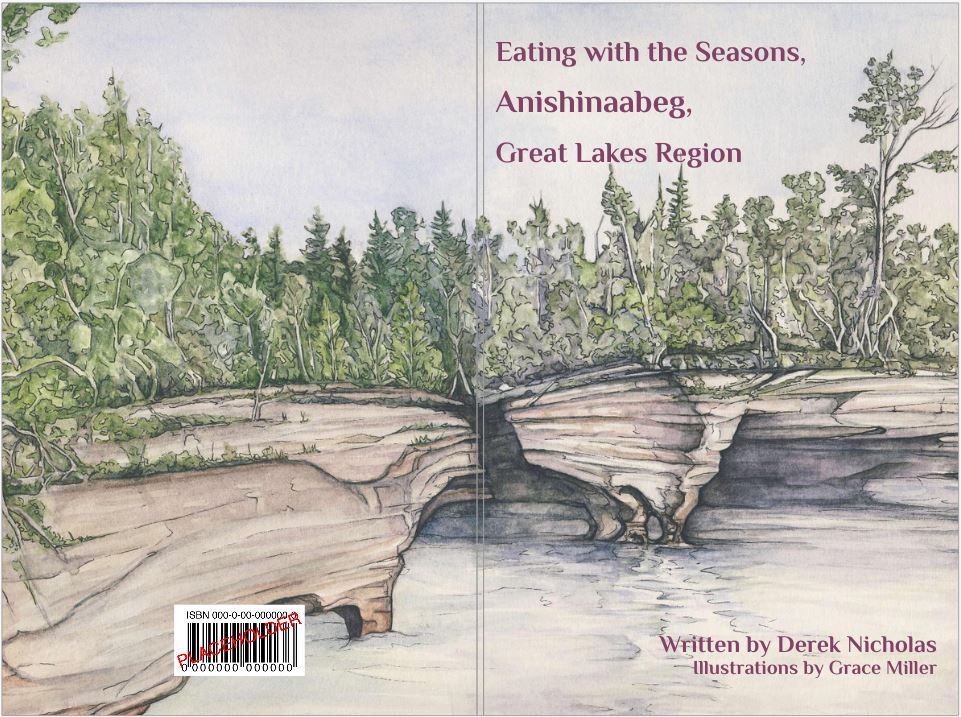
Derek Nicholas
By Carin Tunney
A new cookbook serves up the culture along with the food of the Indigenous people of the Great Lakes region.
“Eating with the Seasons, Anishinaabeg, Great Lakes Region,” combines recipes, language and the history of the Anishinaabeg (uh-NISH-ih-NAH-bay). The name refers to culturally related tribes of Indigenous people mostly found in Canada and the Great Lakes region.
A hunger to preserve a piece of American culture and a developing interest in food are the main ingredients that prompted the cookbook, said Derek Nicholas, who is a member of the Red Cliff Band of Lake Superior Chippewa, and a senior at University of Minnesota, Morris, in rural western Minnesota.
“Back in the day, elders would take their sons and their daughters out fishing and they would use the language,” he said. “You’d hear how to catch the fish, how to net fish, how to cook the fish. Nowadays that’s just not the case. If we can revitalize the language and the food, or both, it will all come together as one.”
The cookbook includes simple and traditional recipes for each month of the year, including recipes for curried squash soup, venison chili and Nicholas’ favorite, the purple pollinator snack. That’s like a breakfast salad with berries and herbs, he said.
Along with recipes, the book includes Anishinaabemowin phrases like, Ininamawishin zhilwitaan or “pass me the salt.” It reports bits of history like how the people used different moons as a calendar of when to hunt, plant and harvest.

The book is available for free on the University of Minnesota website
“I think it is important because it’s our story,” Nicholas said. “If we lose our language, we lose our spirit.”
The book also features soft, pastel watercolors by Grace Miller, a University of Minnesota student who met Nicholas’ while volunteering for their school’s gardening club. A conversation about native foods and plants led him to ask her to get involved, she said.
“My favorite part of the illustrations was chatting with Derek during the creative process and adding the final touches at the end,” she said.
Nicholas, who grew up in the suburbs of Milwaukee, said he had little knowledge of his cultural heritage when he arrived at the rural town in Minnesota as a college freshman. His classes sparked the need to learn more about his ancestors and help serve the community. His interest in food centers on food sovereignty, which is the idea that people deserve healthy and culturally appropriate foods.
Nicholas also created a meals program for low income people and worked to expand healthier options at a local food pantry.
Mary Jo Forbord, Nicholas’ supervisor at the University of Minnesota, said his interest in food might not have been what he expected when he arrived in the small Midwestern town sight-unseen after growing up in suburban Milwaukee, but he made a difference by connecting with community leaders and embracing his cultural roots.
“I believe that food took Derek by surprise,” Forbord said. “He exclaimed something like, ‘You’ve got to be kidding.’
“He was expecting something different from college than what he saw here. But as he looked deeper, his journey through food in this place led him in a direction where we can all see many good results.”
Nicholas graduates this fall with a degree in economics. He hopes to find work in food systems but may continue to graduate school.
The book is available for free on the University of Minnesota website. Print copies can be ordered at blurb.com for $16.
